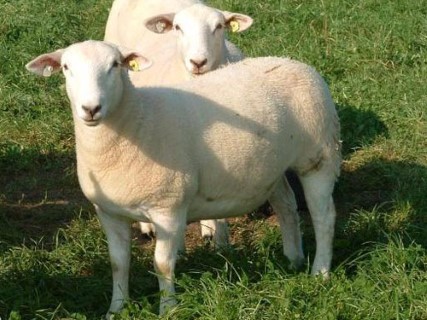The Nolana sheep breed is specifically bred to combine the favorable traits of hair sheep with those of native wool sheep. Nolana sheep are classified as hair sheep, meaning they do not produce traditional wool but instead have a smooth coat during summer months. However, during winter, they develop a thick pelt measuring approximately 4-5 cm (1.6-1.8 inches) in thickness, which they naturally shed in spring. As a result, Nolana sheep do not require shearing, reducing the labor and costs associated with wool production.
During the development of the Nolana sheep, two distinct types have emerged: a meat-type (fleischscafe) and a landrace-type (landscafe), each suited to different management systems and environmental conditions. The meat-type Nolana sheep are predominantly white in color, while the landrace-type exhibits more variability in color and physical characteristics, reflecting their adaptability to diverse landscapes and settings.
Overall, Nolana sheep are prized for their dual-purpose characteristics, offering both meat production and efficient management due to their natural shedding of wool-like pelts, making them an attractive choice for producers seeking low-maintenance sheep breeds suited to varying environmental conditions.

